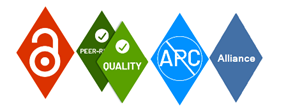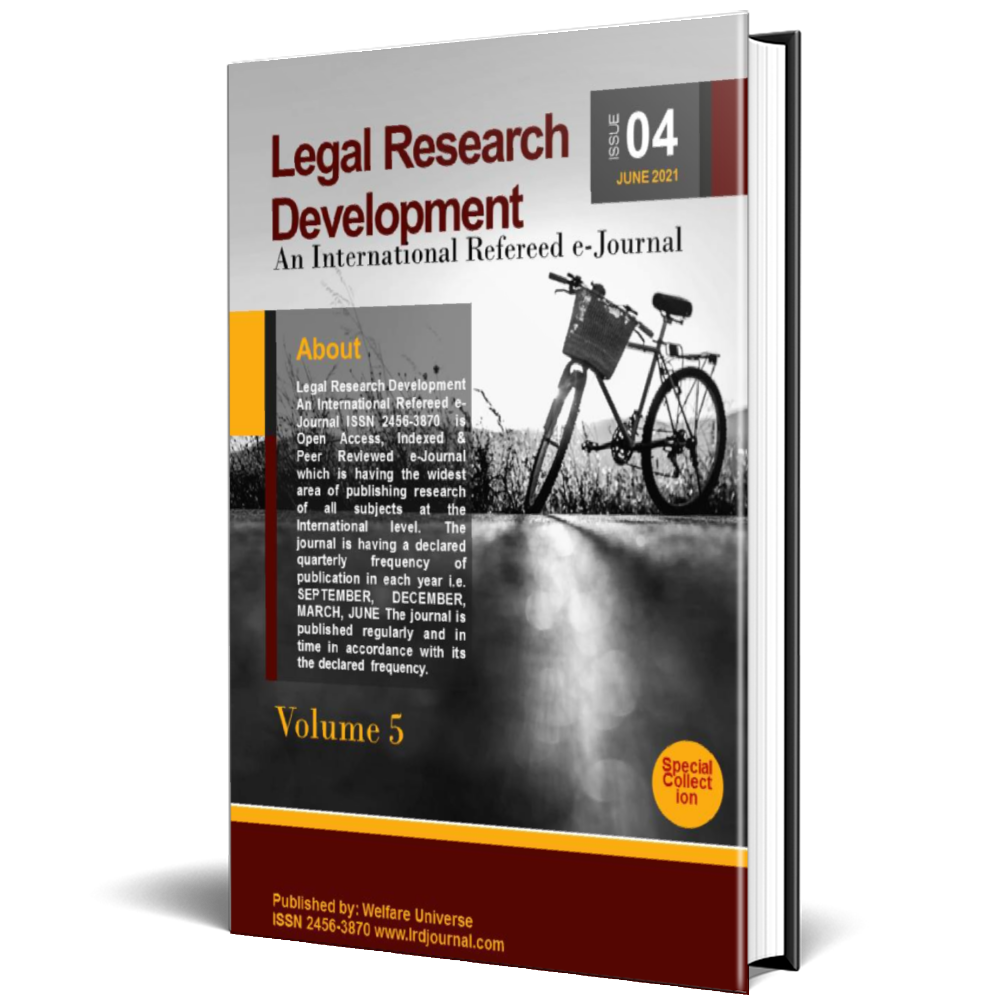Rights And Interest of Indigenous People: In Post Independent India From The Perspective Of Human Rights
DOI:
https://doi.org/10.53724/lrd/v1n3.12Keywords:
Indigenous people,, Human Rights,, Law,, Principles,, Development,Abstract
People who inhabited a land before it was conquered by colonial societies and who consider themselves distinct from the societies currently governing those territories are called Indigenous peoples. Large areas of the earth’s surface are inhabited by substantial number of Indigenous Peoples. According to rough estimates, globally they account for about one sixth of the population; there are some 370 million indigenous people around the world, the rights of who are often ignored, yet, due to their geographical spread across continents and countries, Indigenous Peoples. They live in nearly all the countries on all the continents of the world and form a spectrum of humanity, ranging from traditional hunter gatherers and subsistence farmers to legal scholars. Despite the extensive diversity in indigenous communities throughout the world, all indigenous peoples have one thing in common- they all share a history of injustice. The nations of the world refuse to recognize that indigenous peoples have human rights. They have been denied the right to participate in governing process of the current state systems. Conquest and Colonization have attempted to steal their dignity and identity as indigenous peoples, as well as the fundamental right of selfdetermination.
References
Stephen Corry, Director of Survival International, interviewed by Haider Rizvi, UN Faces Test on Native Rights, Inter Press Service, October 13, 2006.
http://www1.umn.edu/humanrts/edumat/studyguides/indigenous.html
Draft Declaration on the Rights of Indigenous Peoples, Article 3.
www.iwgia.org/regions/asia/india last access 26/12/2016
The Convention uses the inclusive terminology of “indigenous and tribal peoples” and ascribes the same set of rights to both groups. In Latin America, for example, the term “tribal” has been applied to some Afro-descendant communities
Fernanda Doz Costa: Poverty and Human rights: From Rethoric to Legal Obligation, A critical account of Conceptual Frameworks, SUR International Journal of Human Rights, No. 9, December, 2008, p.82
United Nations Permanent Forum on Indigenous Issues (UNFPII), accessed Dec. 26, 2016
India_IW2015_web.pdf
Permanent Forum on Indigenous Issues, Report on the first session (12-24 May 2002) E/2002/43/Rev.1 Para 8.
Article 1, paragraph 1of Charter of the United Nations and the International Covenant on Civil and Political Rights and the International Covenant on Economic, Social and Cultural Rights
www.iwgia.org/regions/asia/india last seen 26/12/2016
Kailas & Others.. Appellant (s) -versus- State of Maharashtra
. http://www.pdhre.org/indigenous.html. last access 26/12/2016
Article by Akanksha Sharma Tribal laws in india and tribal conventions on rights of indigenous people worldwide, Feb 25, 2012 or access at http://www.articlesbase.com.
• Mukundakam Sharma., Edited by Subhram Rajkhowa & Manik Chakraborty., Indigenous peoples and Human Rights, 1st Edt.,R. Cambray & Co. Private Ltd.,2009.
• C.R Bjoy, India and the right of Indigenous people: Constitutional, legislative and administrative provisions concerning indigenous and tribal people (2010).
• James Anaya, Indigenous peoples in International Law 3(2d ed. 2004).
• International Law and Indigenous Peoples by Joshua Castellino; Niamh Walsh Martinus Nijhoff, (2005).
• Identify and Knowledge in Indigenous Young Children's Experiences in Canada By Ball, Jessica Childhood Education, Vol. 88, No. 5, (September-October 2012).
• www.iwgia.org.
• http://www.achrweb.org/ihrrq/issue2/indigenous.html.
• http://www1.umn.edu/humanrts/edumat/studyguides/indigenous.html.
• http://www.un.org/esa/socdev/unpfii/documents/SOWIP/en/SOWIP_web.pdf.
Downloads
Published
How to Cite
Issue
Section
License
Copyright (c) 2017 Legal Research Development: An International Refereed e-Journal ISSN: 2456-3870

This work is licensed under a Creative Commons Attribution-NonCommercial 4.0 International License.










